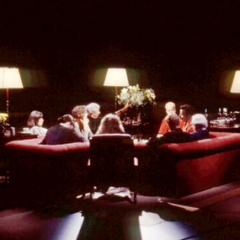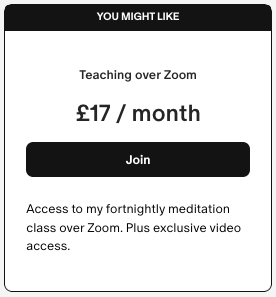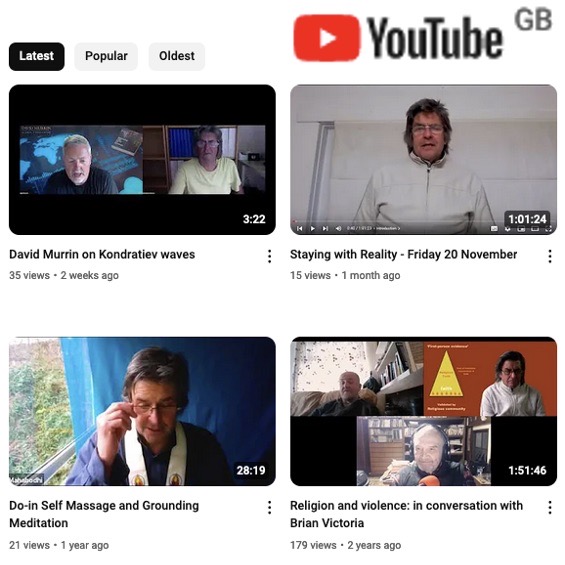Inspiring ideas: After Dark-style conversations
A relaxed human conversation On 17 March 2020, the day after the British prime minister Boris Johnson announced the lockdown, I felt a compulsion to help with the Coronavirus crisis and began teaching live daily meditation sessions on Facebook, which turned into series of themed talks uploaded on my YouTube channel ‘Compassionate Response to Covid-19 with Mahabodhi.’ After Dark In one series – called ‘Meet the Order‘ – I made an interesting discovery. Interviewing friends who were fellow members of the Triratna Buddhist Order I noticed that when I interviewed two together the tone was relaxed, easy, but took on a certain level of depth and subtlety, and I was reminded of a discussion programme broadcast in the UK between 1987 and 2003 on Channel 4 television and later on the BBC called After Dark. It aired live at midnight on Saturday night and ran open-endedly throughout the night – often lasting for three or more hours – attaining widespread acclaim: After Dark earned a remarkable spread of critical enthusiasm, from the Socialist Worker (“my favourite chat show”) and The Guardian (“one of the most inspired and effective uses of airtime yet devised”), and The Daily Telegraph (“A shining example of late-night television”), to more media focussed journals such as the BFI’s Sight & Sound (“often made The Late Show look like the Daily Mirror“) and even the US showbiz bible Variety in its review of the year (“compulsive for late-night viewers”).The Listener magazine called it “The programme in which you can see the people think” (1) Open Media – After Dark’s production company – recently uploaded excerpts from these iconic TV programmes onto YouTube, and there has been a recent rekindling of interest in the programme: in 2020 Simon Heffer wrote in a Daily Telegraph article No Twitter mobs, just intelligent debate, that “the time is surely ripe for the return of a programme such as After Dark, and from an article in The Guardian called Rerun the jewels: the TV shows we’d like to see back on the box: “With no host, no audience and a distinct lack of commentators fighting an unending culture war, it offered a thing that’s now extinct: constructive debate.” Constructive debate is important in today’s chaotic and divided world, yet instead of the ‘currency of debate’ being solely about the exchange of ideas, I thought it would also be helpful if another key aim of the conversation was to bring more of the humanity of the participants into visibility; the Buddha taught that the truly human society is brought about through four means: i) human beings who exemplify the qualities society...








 Users Today : 62
Users Today : 62 Users Yesterday : 23
Users Yesterday : 23 This Month : 520
This Month : 520 Total Users : 13947
Total Users : 13947
